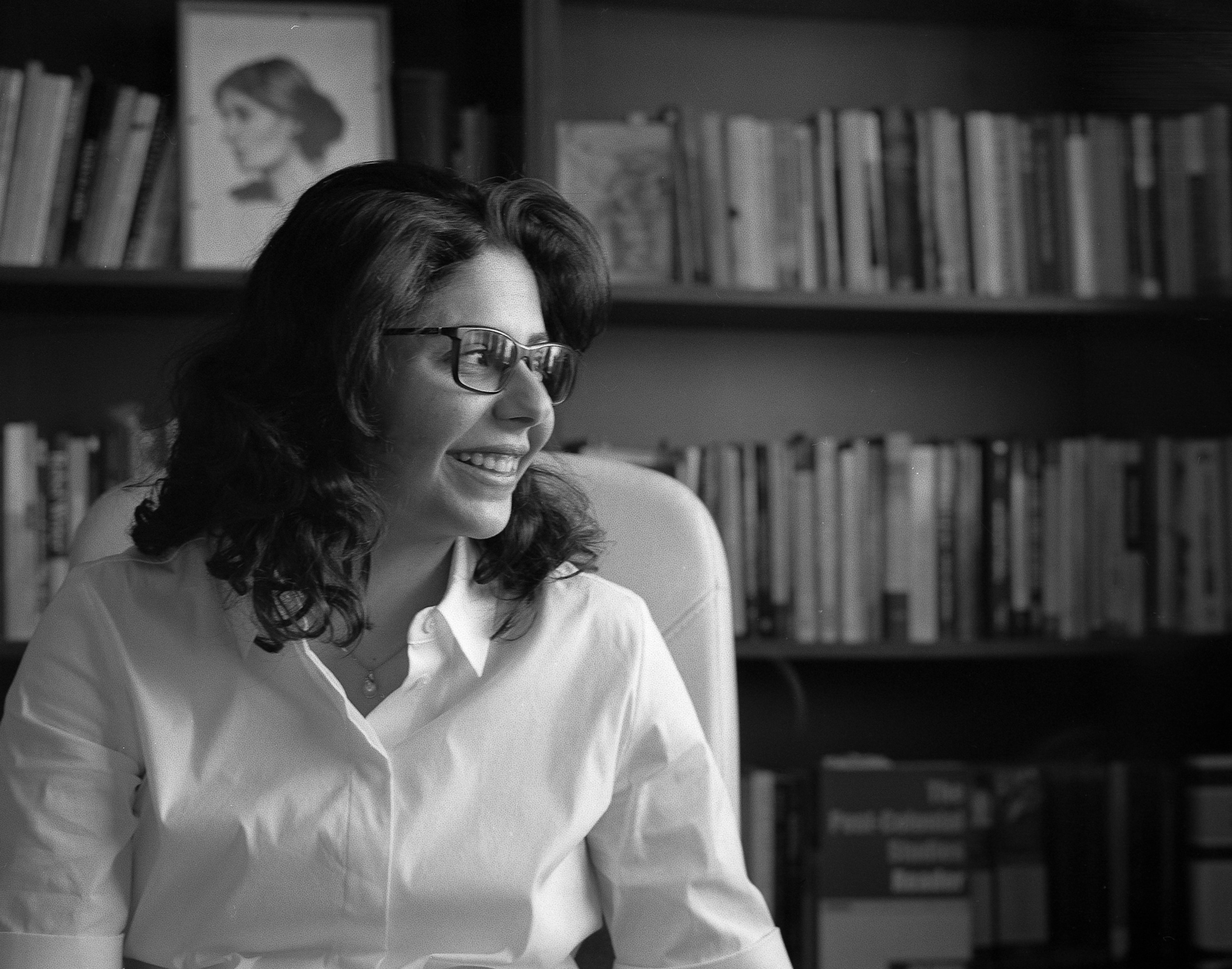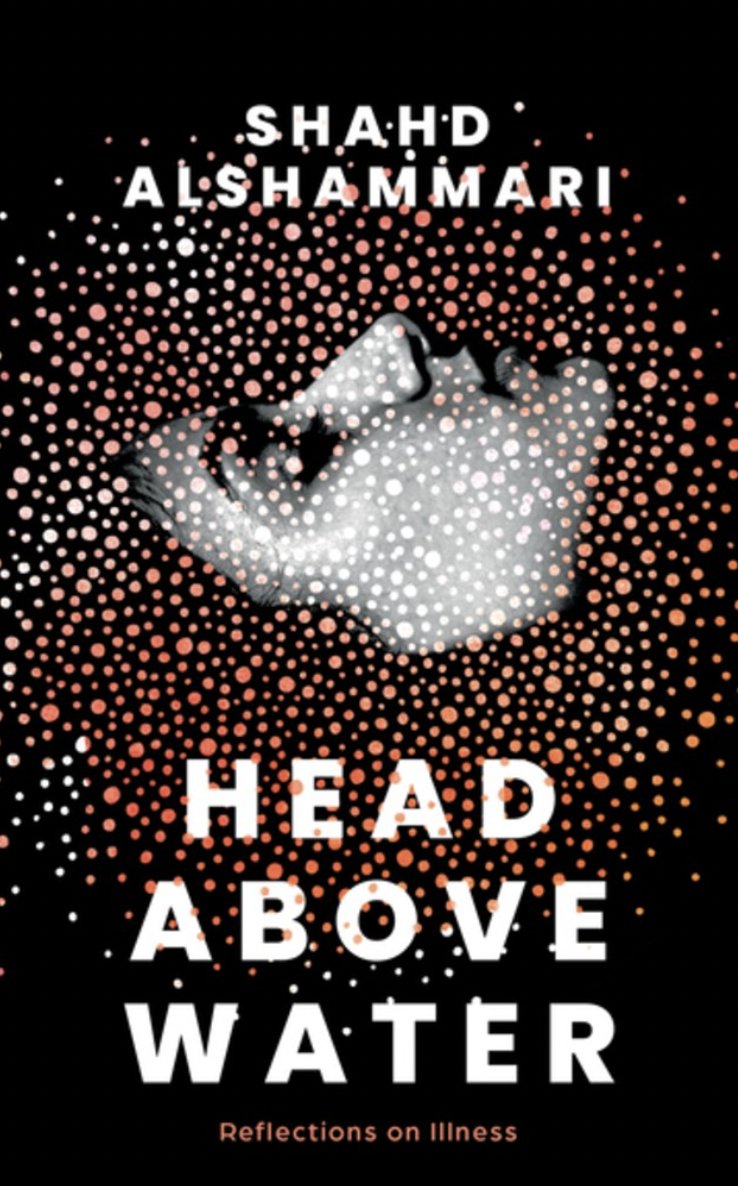Published February 13th, 2023
Interview
by Ibrahim Fawzy
Shahd Alshammari is a Kuwaiti-Palestinian author and academic. She holds a PhD in English Literature from the University of Kent in England. Alshammari writes both creatively and academically. Her first collection of short stories Notes on the Flesh (Faraxa Press, 2017) is part-memoir, part-illness narrative that deals with disability and pain, crushes taboos, and speaks up about gender injustice in the Middle East. Alshammari was awarded the 2021 Outstanding Monograph of the Year presented by the International and Intercultural Communication Division (IICD) at the National Communication Association’s (NAC). Longlisted for the Barbellion Prize 2022, her recent memoir, Head Above Water (Neem Tree Press, 2022), has been released to great critical acclaim with Jokha Alharthi, winner of the 2019 International Man Booker Prize, saying: “The core of the book lies in its intimate questioning of loneliness and disability.” Marcia Lynx Qualey, founding editor of Arablit, describes it as “a necessary and beautiful account of life.”
Aged 18, Shahd Alshammari woke to find her body completely numbed by Multiple Sclerosis (MS), her life now changed to that of a young person living with chronic pain. Alshammari’s mesmerizing memoir, Head Above Water, takes us through her low points and triumphs. It is also a reflection on illness and the stories of other women whose lives have been similarly affected, highlighting how these women have not only had to fight against the illness, but also for acceptance by a society that rejects anything and anyone that is different.
Ibrahim Fawzy: First off, Mabrouk! Congratulations! Your recent memoir, Head Above Water, has been longlisted for the Barbellion Prize 2022. What does that mean to you?
Shahd Alshammari: It’s an honor! I am very happy to be longlisted with amazing authors. As an Arab author writing in English, there are a few prizes that are open to us for submission. There tends to be criteria like “must reside in the US/UK” even for “International” prizes. I would love to see more prizes for Arab authors living anywhere in the world.
Ibrahim: Susan Sontag says, “Illness is the night side of life, a more onerous citizenship. Everyone who is born holds dual citizenship, in the kingdom of the well and in the kingdom of the sick. Although we all prefer to use the good passport, sooner or later each of us is obliged, at least for a spell, to identify ourselves as citizens of that other place.” Could you please tell us about your journey with Multiple Sclerosis (MS), its echo in your writings, and how writing helped you reflect on it?

Shahd: Writing has been my antidote to pain, emotional and physical pain. We all must deal with loss, through loss of the other, loss of the self, body, health, and even death. To write is to document a life, to heal, to find meaning and solace in what is at many times random and meaningless (life itself!) As a teenager, I fell in love with literature and writing, and have managed to make a career out of it. MS is an often disabling illness, and very common in the Arab world, even though statistics tend to say otherwise. With an invisible disability/illness, people need toolboxes for survival. Mine is writing.
Ibrahim: When did you start writing creatively? In what language do your ideas come to you? And do you have a strict writing routine?
Shahd: I started writing creatively when I was seven years old, short stories and a documentation of every major and minor event that would happen to me. I remember writing about the birth of my sister, and how I was excited but also confused about what that would mean (the addition of a family member). I made sense of experiences through writing. I write in English but think both in English and Arabic. Some phrases come to me in Arabic while others arrive more naturally in English. I do have a writing routine, weekends mostly, and early mornings. It is about energy conservation, finding the time, energy, and trying to write creatively when I can. Having a full-time job as a university lecturer can be difficult when it comes to writing creatively. I try to make it work!
Ibrahim: After the signing event of Head above Water in Kuwait, you wrote on Twitter:
“At my book signing event a man attacked me for writing in English. How dare I write in English? How sad, such a bad influence, disrespecting my heritage. This went on and on. When will this hostility end? We write to express ourselves not to represent an entire race.”
What is your experience of writing in English? When did you encounter English as your creative voice? Do you feel that there are times when writing in Arabic would convey meaning more fully? What obstacles, if any, did you face when you started to write in English as your non-native language? Did you ever feel that you had to work harder since English is not your mother tongue?

Shahd: English for me comes very naturally. Growing up educated in a private American school meant that I was reading and writing in English. It is not a language that I see as “foreign” and difficult to reconcile with. It is just a tool that I use to express myself. I express myself better in English, but that does not negate my love for Arabic literature and language. Every individual chooses the language that they feel captures the meaning they want, and I think it is more complicated than just one way or the other. Some obstacles include a rejection by publishers, asking you to write in Arabic instead, or readers questioning the work’s value because its original language is English. People always want to know “Why” do Arab authors write in English, but it isn’t much of a question for other authors writing in English.
Ibrahim: What advice would you give to emerging writers who chose to write in English?
Shahd: I would say we need to understand our relationship with the English language as one of comfort rather than discomfort. I would also say submit to literary journals, keep writing, and mainly keep reading. Reading works written by Arab authors especially is helpful — you get to see what themes come up, style, and try to see what you’d like to add to the work already out there.
Ibrahim: You say: “Literature has been my home for decades.” How do you think your “random disability,” as you termed it in one of your academic papers, impacted your relation with literature? And how literature saved your life?
Shahd: Literature provides us with stories of loss, pain, love, and hope. It develops our empathy, our vulnerability as both readers and writers, and allows us room to reflect on our experiences, lives, and even our relationships with others. Literature has anchored me, kept me here. It kept me connected to the world, and unlike what many people think, it didn’t provide me with a sense of escape, but rather of belonging.
Ibrahim: If you were to choose 4 titles that would represent, to you, the most interesting books (perhaps experimental, challenging, or influential in some way) written in English by Arab authors, what would they be?
Shahd:
I love The Autobiography of a Language by Mirene Arsanios. That’s my top pick in terms of experimentation and influence. Master of the Eclipse by Etel Adnan — all of her works really, but this one is my choice. She is a master of language. Saleem Haddad’s work (Guapa). He tackles important issues of sexuality and identity. Randa Jarrar’s memoir Love is an Ex-Country is my favorite work by her. She engages with trauma and the body in vulnerable and jarring ways.
Ibrahim: What is your reading practice like? What is your favorite genre? What was the last book you read?
Shahd: I read all the time, everywhere. I read between my classes, at night, while I’m waiting in a long line, anywhere I can. I use ebooks just because it’s faster and easier to get access to books this way. My favorite genre is fiction that deals with the body and gender. Next would be illness narratives of all sorts. The last book I read was This Arab Life by Amal Ghandour.
Ibrahim: And finally, what are you currently working on?
Shahd: I am working on a novel, also dealing with the body and gender. I hope to continue working on it and find the time for it!
Nationality: Egyptian
First Language(s): Arabic
Second Language(s):
English,
French
Supported by:


Comments on "On Language, Writing, Disability, and More — An Interview with Shahd Alshammari"
Please log in to submit a comment.
Login